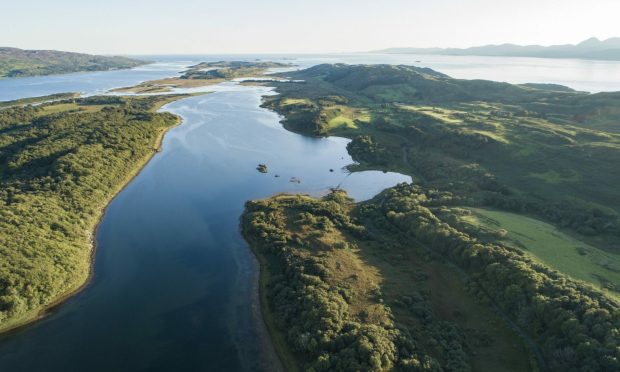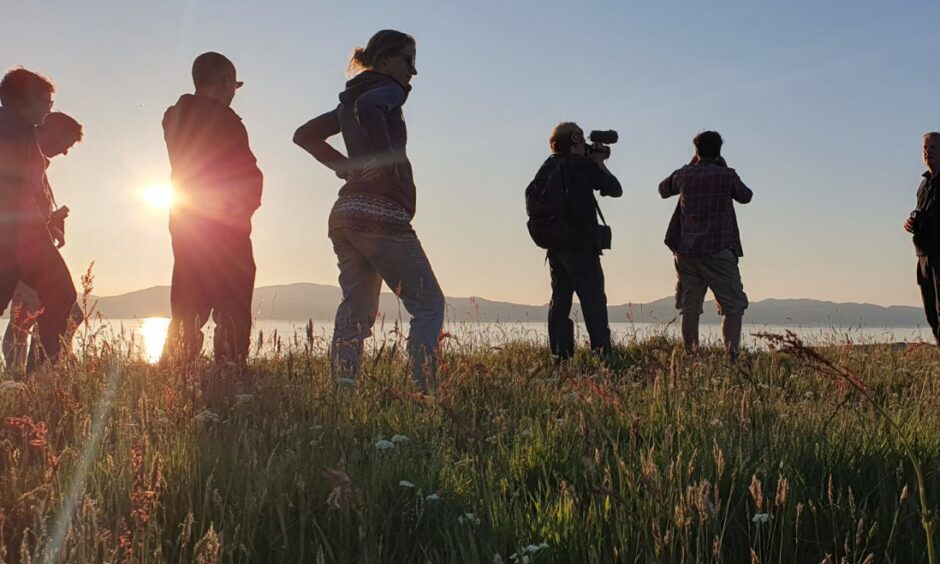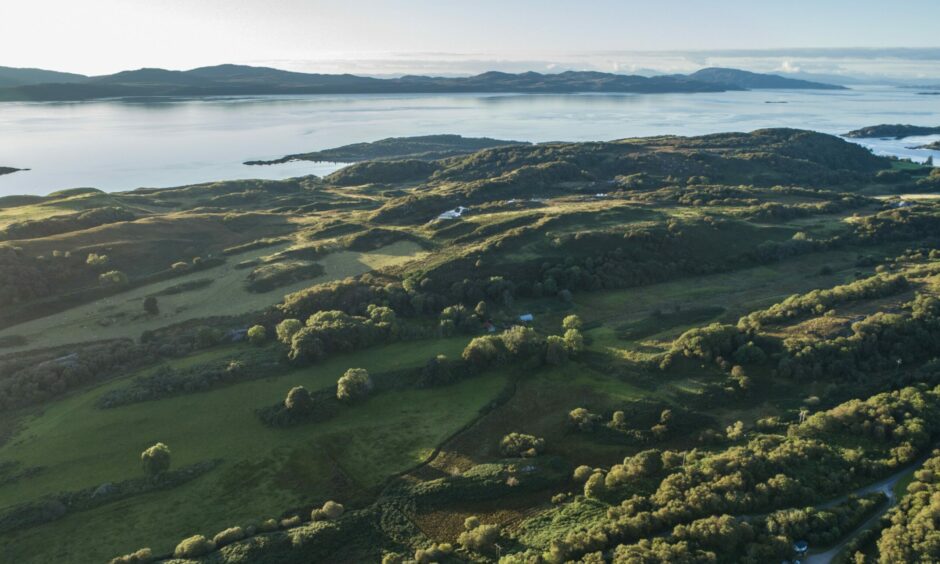A ground-breaking deal between an Argyll community and a landowner could help tackle an affordable housing shortage in the area.
The agreement between the Tayvallich Initiative and Highlands Rewilding is being seen as a middle ground between private and community ownership.
It is hoped it can now become a model that could be replicated elsewhere.
Highlands Rewilding announced in March it secured the funds to buy the 3,200-acre Tayvallich Estate.
The purchase was completed in May, the third estate snapped up by the mass-ownership for-profit company.
Tackling depopulation
It has now signed a Memorandum of Understanding (MoU) with community body Tayvallich Initiative which wants to build new affordable housing on the estate.
It was recently awarded £565,608 from the Scottish Land Fund to buy 34 acres of land from Highlands Rewilding and fund a project officer as well as environmental initiatives.
It has also been gifted around 113 acres from the previous estate owner.
The group plans to develop new housing and a Rural Housing Burden will be applied to plots or properties that are sold.
It will include a condition to use the property as the owner’s primary residence, giving the community the right of pre-emption of future sales.
This is aimed at tackling depopulation amid rising property prices and with one in every 20 houses in Argyll and Bute a second home or holiday let.
The MoU also includes a no-eviction policy and an undertaking to maintain at least the number of current jobs on the estate.
A key priority for Highlands Rewilding will be to restore the fragments of temperate Atlantic rainforest found on the estate.
The agreement is being seen as the first of its kind in the rewilding community and aims to deliver a “triple-win partnership” for community prosperity, nature restoration and ethical profit to shareholders.
Highlands Rewilding was set up by Dr Jeremy Leggett, founder of the solar energy company Solarcentury and former scientific director at Greenpeace.
Fifty initial funders injected £7.6 million into the company which bought the 1,262-acre Bunloit Estate near Loch Ness in 2020.
The 860-acre Beldorney Estate in Aberdeenshire was acquired the following year.
Community engagement central
Dr Leggett said: “The model Highlands Rewilding is pursuing is one that can attract investment into nature recovery at the scale desperately needed to halt biodiversity collapse, with community invited to be part of this; second only to that within community land trusts.
“Community engagement is central to all the work we undertake and forms an integral part to the success of nature regeneration and community prosperity.
“We’re delighted to have reached a conclusion with the MoU and look forward to our ongoing work with Tayvallich Initiative and the wider community to develop the best-practice in Scotland.
“It’s my hope that the protocol, coupled with our efforts in maximising nature recovery by rewilding and repeopling, will be an exemplar for our work and one that other land managers and landowners across the country will adopt.”
Martin Mellor, chair of Tayvallich Initiative, said it is planned to set up a local board with nominations from the wider community.
“We look forward to developing an ongoing relationship with Highlands Rewilding as it begins work in this area which has great potential, for both nature restoration and regeneration, and for community prosperity and repopulation.”
What do young people think?
The MoU has also been welcomed by young residents.
Rowan Aitchison said: “I really hope people here, especially young people, get the opportunity to live and work on the land and reconnect with the nature we have.
“If Highlands Rewilding can work with us to make that happen then that would be great.”
Joe Osborn added: “There is this idea that if you were brought up here, when you’re old enough you have to leave and go far away to find work.
“It would be nice if that changed, if there was housing that was affordable. Jobs to come with that that would be great.
“If Highlands Rewilding is involved and help with that sort of thing it would be brilliant.”
Community Land Scotland said the agreement is interesting and “hopefully represents a new approach for major landowners in their relationship with local communities.
“While it falls far short of the benefits of full community ownership, it does start to explore ways in which local people can have more agency and control over what happens locally and benefit from new land uses.
“We hope it’s a model that other landowners and communities can learn from.”



